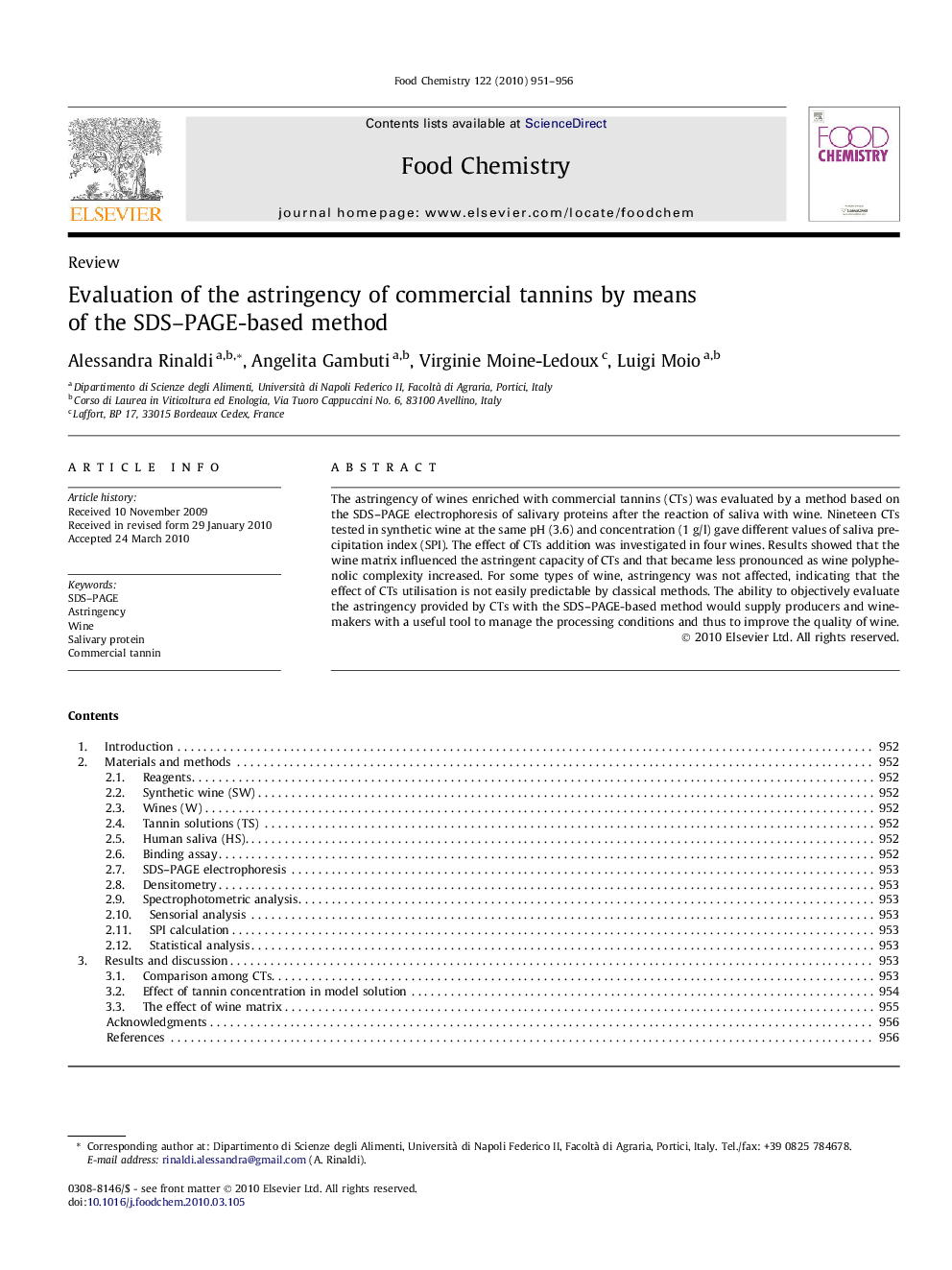| Article ID | Journal | Published Year | Pages | File Type |
|---|---|---|---|---|
| 1185127 | Food Chemistry | 2010 | 6 Pages |
The astringency of wines enriched with commercial tannins (CTs) was evaluated by a method based on the SDS–PAGE electrophoresis of salivary proteins after the reaction of saliva with wine. Nineteen CTs tested in synthetic wine at the same pH (3.6) and concentration (1 g/l) gave different values of saliva precipitation index (SPI). The effect of CTs addition was investigated in four wines. Results showed that the wine matrix influenced the astringent capacity of CTs and that became less pronounced as wine polyphenolic complexity increased. For some types of wine, astringency was not affected, indicating that the effect of CTs utilisation is not easily predictable by classical methods. The ability to objectively evaluate the astringency provided by CTs with the SDS–PAGE-based method would supply producers and winemakers with a useful tool to manage the processing conditions and thus to improve the quality of wine.
